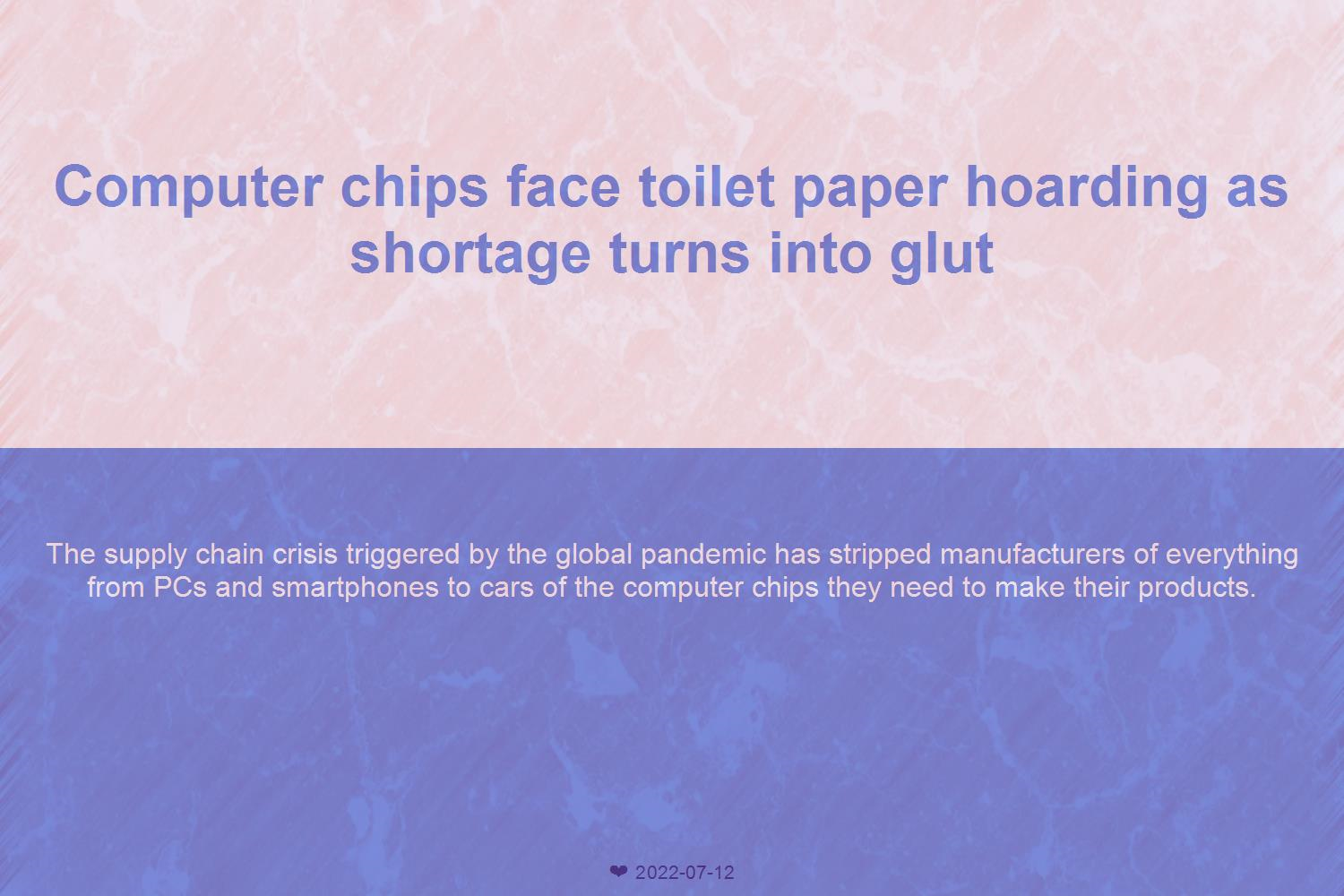Computer chips face toilet paper hoarding as shortage turns into glut
Micron's solid-state drives for data center customers were unveiled at a product launch event in San Francisco, U.S., October 24, 2019. REUTERS/Stephen Nellis/.
OAKLAND, Calif., July 12 — A supply chain crisis triggered by the global pandemic has stripped manufacturers of everything from personal computers and smartphones to cars of the computer chips they need to make their products.
All of this changed abruptly in three weeks from late May to June as high inflation, the recent COVID lockdown in China and the war in Ukraine dampened consumer spending, especially on PCs and smartphones expenditure.
The chip shortage has turned into a flood in some areas, catching Wall Street by surprise. At the end of June, memory chip company Micron Technology (MU.O) announced it would cut production. Micron’s chief commercial officer, Sumit Sadana, acknowledged that the market reversal took Micron by surprise.
As chip earnings season kicks off in the U.S. later this month, TechInsights chip economist Dan Hutcheson warned of more bad news after Micron's bleak outlook. "Micron works with their honesty," he said.
Fears of an industry downturn have taken a toll on chip stocks, with the Philadelphia Semiconductor Index (.SOX) plummeting 35% so far in 2022, far outpacing the S&P 500 (.SPX)'s 19% drop.
(See https://tmsnrt.rs/3arSbBA).
Hoarding can make it worse. Just as nervous shoppers searched supermarket aisles for toilet paper before the COVID-19 lockdown, manufacturers have been stockpiling computer chips during the pandemic. Until then, "just-in-time" manufacturing was the norm for fiscally conservative companies, who ordered parts as close to production time as possible to avoid excess inventory, reduce storage capacity and reduce up-front costs.
During the pandemic, this has transformed into what some have dubbed the "just in case" practice of hoarding chips. "Hoarding is a signal they think is important until one day they see it and say, 'Why do I have so much inventory?'" said Hutcheson, who has been forecasting chip supply and demand for more than 40 years. "It's a bit like toilet paper." Experts say the big-chip reversal hits economic sectors unevenly. Big chip suppliers to consumer electronics makers, especially low-end smartphones, will be hardest hit by the recession, said Tristan Gerra, senior semiconductor analyst at Baird. Gerra said Nvidia Corp (NVDA.O), the design giant whose graphics chips are used in gaming and cryptocurrency mining, could see "another dip" as prices continue to fall, exacerbated by the recent collapse in the cryptocurrency market. fell. Wedbush analyst Matt Bryson said the least affected by the floods were Apple's suppliers, such as the world's largest chipmaker TSMC (2330.TW). Demand for more premium Apple devices remains high. Chipmakers supplying cars and data centers will also thrive, Gerra noted, noting that demand continues to grow. "We've become power-management robbers," said an executive at another global chipmaker, who asked not to be named.
However, for RF chips used in smartphones, "we're seeing a pullback due to phones," he added.
The executive's chip factory is "remodeling" the production line to make more automotive power management chips and fewer radio frequency chips, which could eventually help ease some automotive chip bottlenecks, he said.
While industry executives and analysts can't determine how many excess chips are in global inventories, major electronics manufacturing services companies posted record first-quarter inventories, Jefferies analyst Mark Lipacis said in a July 1 statement. The previous first-quarter record was more than two decades ago, just before the dot-com bubble burst.
Instead of buying new chips and canceling orders, manufacturers may decide to run out of chips in warehouses, Lipacis warned.
Some analysts say auto chipmakers are safe for now. But this can't last long...
Bernstein analyst Stacy Rasgon said in a September report that automakers are ordering far more chips than they seem to need, and that trend is continuing, he told Reuters.
This creates problems when automakers stop buying chips to deplete inventories.
💌 Resources and references: reuters.com 🔊 Computer chips face toilet paper hoarding moment as shortage turns into oversupply.



Comments
Post a Comment